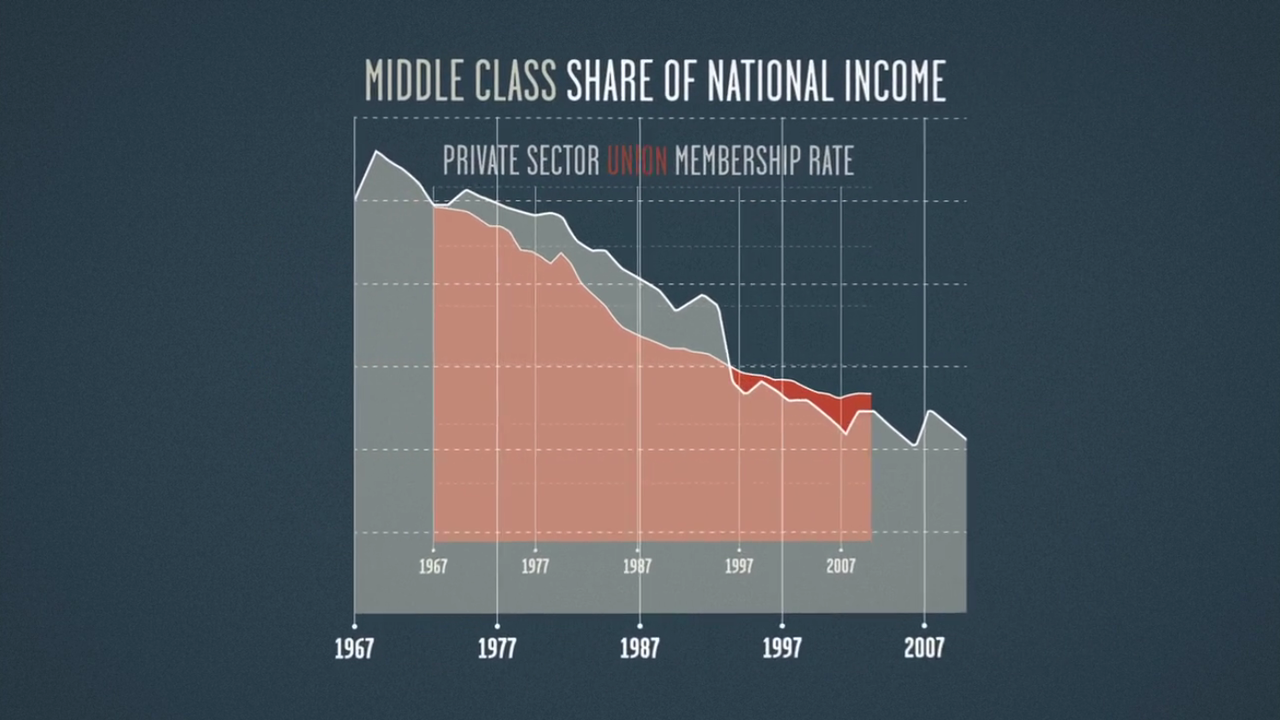Director: Jason Kornbluth,
Watched in: Theater,
Rating: 3/5.
Working in the same mode as 2006’s An Inconvenient Truth, director Jason Kornbluth’s Inequality For All expands a series of lectures by former Labor Secretary Robert Reich into a full-length documentary. The subject is not global warming. It’s the widening income gap in America. But like Al Gore’s eye-opening assessment of climate change, Reich’s pronouncements are just as alarming. Both movies could be catalogued within a growing sub-genre of the documentary field labeled “the enlightenment of approaching doom.”
Reich is a likeable, self-effacing, humorous and intelligent guide through the brambles of economic misery choking the middle class in this country. He is filmed giving lectures at the University of California at Berkeley, speaking to union organizers, attending conferences, and talking directly to the camera. His personal history is revealed through family photographs and footage of his stint in the Clinton administration, before he was eased out because he couldn’t shut up about the dire prognosis for the American worker in the age of rapid globalization. He has never stopped fighting for the middle class throughout a long career in liberal politics and the private sector. His warmth and compassion helps in transforming the weedy, difficult subject matter of income inequality into a concise and moving assessment of our endangered democracy.
He is aided by director Kornbluth’s intimate supporting material. Interviews with struggling parents working two or three jobs, union laborers facing extinction, a rich executive who admits that as a member of the top 1% of income earners in the United States, he is part of the problem. Startling statistics are supported by clean, clear graphics and onscreen text. We learn that a measly 6% of the money spent on an iPhone goes back into the American economy. Most of it ends up in Japan and Germany. Workers’ wages have remained stagnant for 30 years and the only way people are surviving is by working more hours, cutting back on comforts, and accumulating massive debt.
When Reich is asked which country represents the best model for a strong and growing middle class he says, surprisingly, the United States. But he means the United States from the 1940s through the 1970s, when unions were secure, jobs stayed in America, and inexpensive higher education was available to everyone. Things are starkly different today. Kornbluth mostly steers clear of bashing Republicans or targeting individual conservatives, but it is nearly impossible not to lay the beginning of our descent at the feet of Ronald Reagan. His union-busting tactics and deregulation policies paved the way for our systemic culture of greed, now fueled by lobbyists and Tea Party extremists. It’s all undeniably dire.
The film skirts some deeper issues. Reich says the term “globalization” has gone from obscurity to meaninglessness in no time, but he doesn’t follow-up with an actual definition of the word. There is little examination of the complicity of mall-hopping, Amazon-shopping consumers in the new economy. And he offers few solutions, other than the standard call to “make your voices heard.” The only comfort to be taken from this film is one of shared misery. 99% of us are struggling to keep our heads above water. Some of us are sitting in the lifeboat, bailing against the leaks. Some are clinging to the side. Others have lost their grip and are sinking fast. Meanwhile, all the life jackets are under lock and key on the luxury liner, sailing away into the sunset.

